He left Silicon Valley to fight on the frontline in Ukraine. Now he’s advising Zelensky’s government
Exclusive: Andrey Liscovich packed up his life in Silicon Valley and returned to Ukraine at the start of the war, helping source and supply items to fighters on the frontline. One year on, he tells Rachel Sharp how he is now advising the Ukrainian government – and how his life has changed

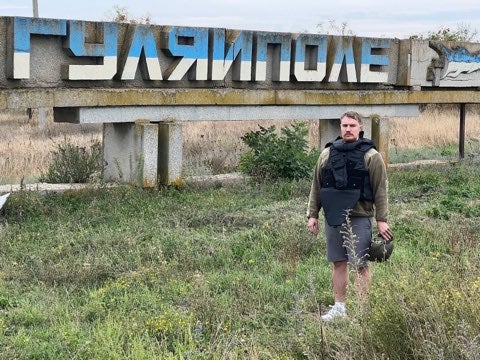
On 24 February 2022, Andrey Liscovich was working on the launch of his latest start-up in Silicon Valley.
Today, on 24 February 2023, he is in eastern Ukraine helping advise President Volodymyr Zelensky’s government on the war efforts.
He may have no military experience. But years of working in the start-up culture of the California tech industry have given him a different set of skills.
It’s a skill set that he is now using to source crucial supplies for Ukrainian troops and distribute them to soldiers and volunteer fighters on the frontline.
“The army has limited bandwidth to liaise with foreign stakeholders, and military officials have not necessarily dealt with supply chain issues and big deals before,” he says.
“I’m now helping in areas where they don’t have that expertise.
“While I don’t have military experience, I do have experience in commercial transactions – and this is what’s needed here.”
Speaking to The Independent on Wednesday – two days before the one-year anniversary of Russia’s invasion – he is en route to his hometown of Zaporizhzhia from Warsaw.
It’s a journey he has made countless times over the past year for his non-profit, the Ukraine Defense Fund, which sources much-needed supplies for thousands of Ukrainian fighters.
This latest trip to Warsaw overlapped with US president Joe Biden’s visit to Poland (something which he noted had left him priced out of his usual hotel in the downtown area of the city).
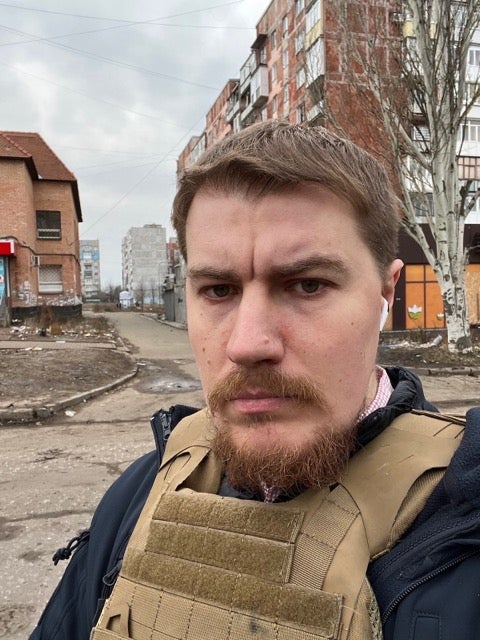
As a Ukrainian national who grew up in the southeast region of the country, Liscovich also has strong ties to the US as well as to the nation whose forces are now attacking his home.
Having gone to college in Moscow, he has many close friends there and holidayed in Russia just weeks before the war began.
After college, Liscovich made the US his home – first doing his PhD at Harvard University and then moving to San Francisco for a career in the heart of Silicon Valley.
There, he spent years working as CEO of Uber Works – Uber’s former offshoot matching gig workers with jobs in various industries – and then as an adviser to start-up businesses while also developing his own start-up.
Tackling supply chain issues is what he knows best.
Swapping Silicon Valley for the battleground
When Russia declared war one year ago, Liscovich packed up his life in San Francisco and headed to Ukraine to help.
When he arrived, he quickly learnt that there was no lack of fighters – but rather a lack of essential goods that the military and volunteer fighters need in order to be prepared for the frontline.
Using his start-up and supply chain background, he launched the US-based non-profit Ukraine Defense Fund and began sourcing any and all non-lethal items soldiers needed.
Back in early March 2022, when Liscovich first spoke to The Independent, the Ukraine Defense Fund was still in its infancy.
It was using private donations from members of the public to procure small quantities of goods.
The supplies in question were basic, non-lethal, but much-needed items including boots, clothing, food, phones, portable chargers and first aid kits.
The focus was predominantly on sourcing locally, so that the items could reach fighters on the frontline as quickly as possible at a time when Russia was bombarding Ukrainian airspace and bombing bridges and routes in and out of cities.
“We were getting things from cities to the frontline within 90 hours – that’s the fastest that I know of,” Liscovich says.
Things look a little bit different today.
Now, the Ukraine Defense Fund is using millions of dollars of funds from contracts with Western governments to procure items on a much larger scale.
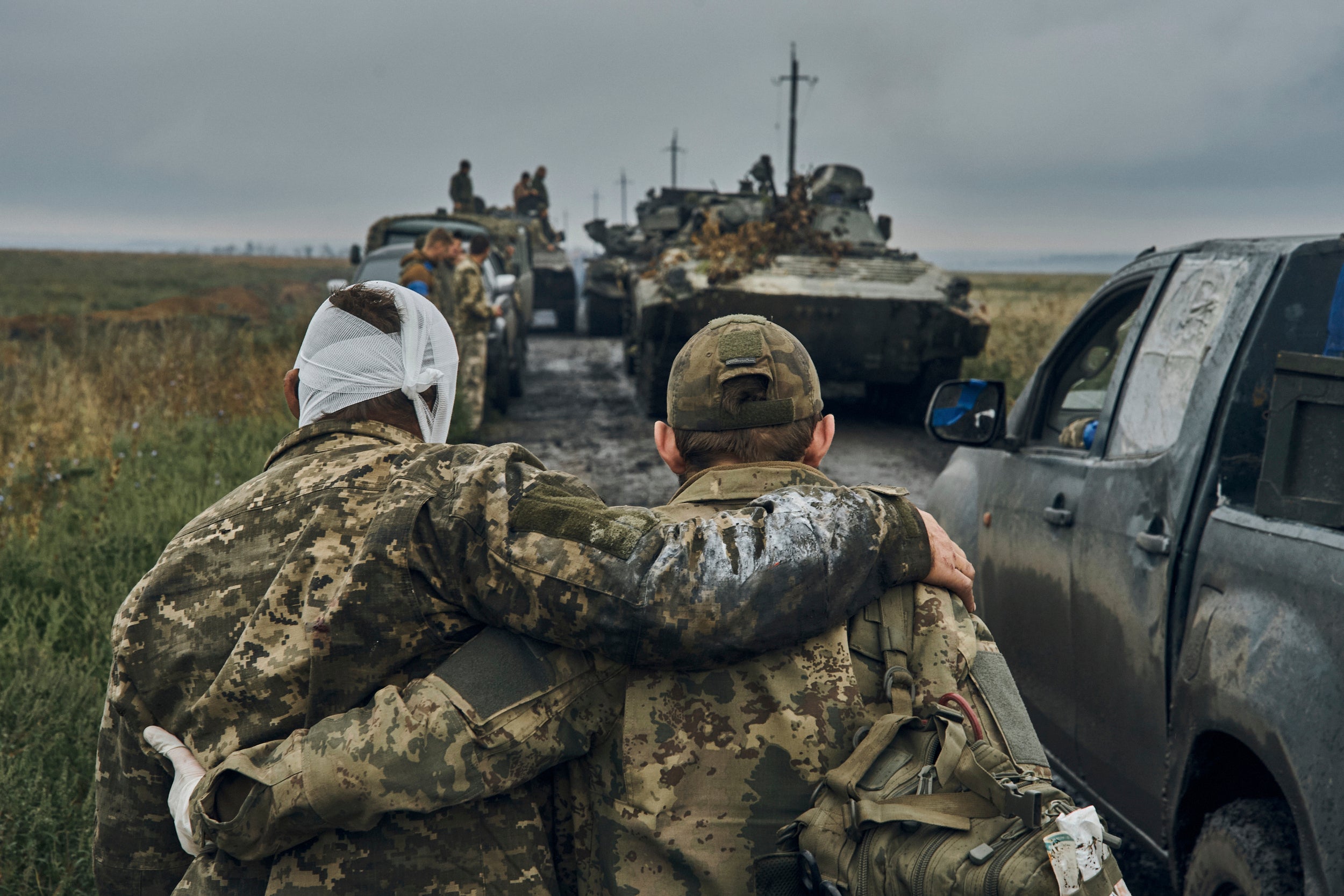
Supplies now include non-lethal equipment including satellite imagery, drones, anti-drone equipment, and cell communications equipment.
The items are now sourced and bought from across Europe and the US and shipped to Ukraine.
And Liscovich is now acting as an unpaid adviser to the Command of Communications and Cybersecurity Forces of the Armed Forces of Ukraine.
‘War is unpredictable’
For him, this means liaising between the Ukrainian government, the Western governments donating aid money and Western suppliers, in order to procure items through large contracts and get them to the areas on the ground where they’re needed.
Much like the evolution of a start-up, these changes were all necessary to adapt to the changing needs of wartime Ukraine.
“War is unpredictable so you have to respond when changes come,” says Liscovich.
“I knew that problems would likely evolve and change along the way.”
A couple of months into the war, private donations had begun to dry up, he explains.
It was around June and Western governments were pledging significant aid to Ukraine, meaning members of the public likely thought their donations wouldn’t be needed “when compared to what was coming from Uncle Sam,” he says.
“Private funds could not deliver anywhere near the volume or quantity of products that can be unlocked through brokering transactions,” he says.
“So our focus shifted to a model focused on procuring things that are paid for by donor government funds. This way we can tap into much larger resources.”
Advising the Ukrainian government
Now, the supplier signs a contract with the Ukraine Ministry of Defence but the supplier is paid with Western government aid.
As such, each deal involves the Ukrainian government, at least one donor government and at least one supplier.
Liscovich explains that procurement and working on commercial transactions don’t generally fall under the expertise and experience of members of the military.
So this is where his experience in procurement and start-up environments – tackling supply chain issues, working with stakeholders and making commercial transactions – comes in.
While he insists that several people are involved in making these deals happen, he plays a key role among all the stakeholders.
The shift to government adviser was also something that came about naturally as the needs on the ground changed.
“Through helping to distribute equipment to the army, I was often asked about where products and equipment should go so I just developed connections with the general staff and command,” he says.
“Over time, I was being asked for advice on various topics and started to informally advise the relevant people in the army on things like how to better communicate with stakeholders in the West.”
The challenges of sourcing and supplying goods to the frontline has also changed over the course of the war – creating a need to source from further afield rather than from local vendors.
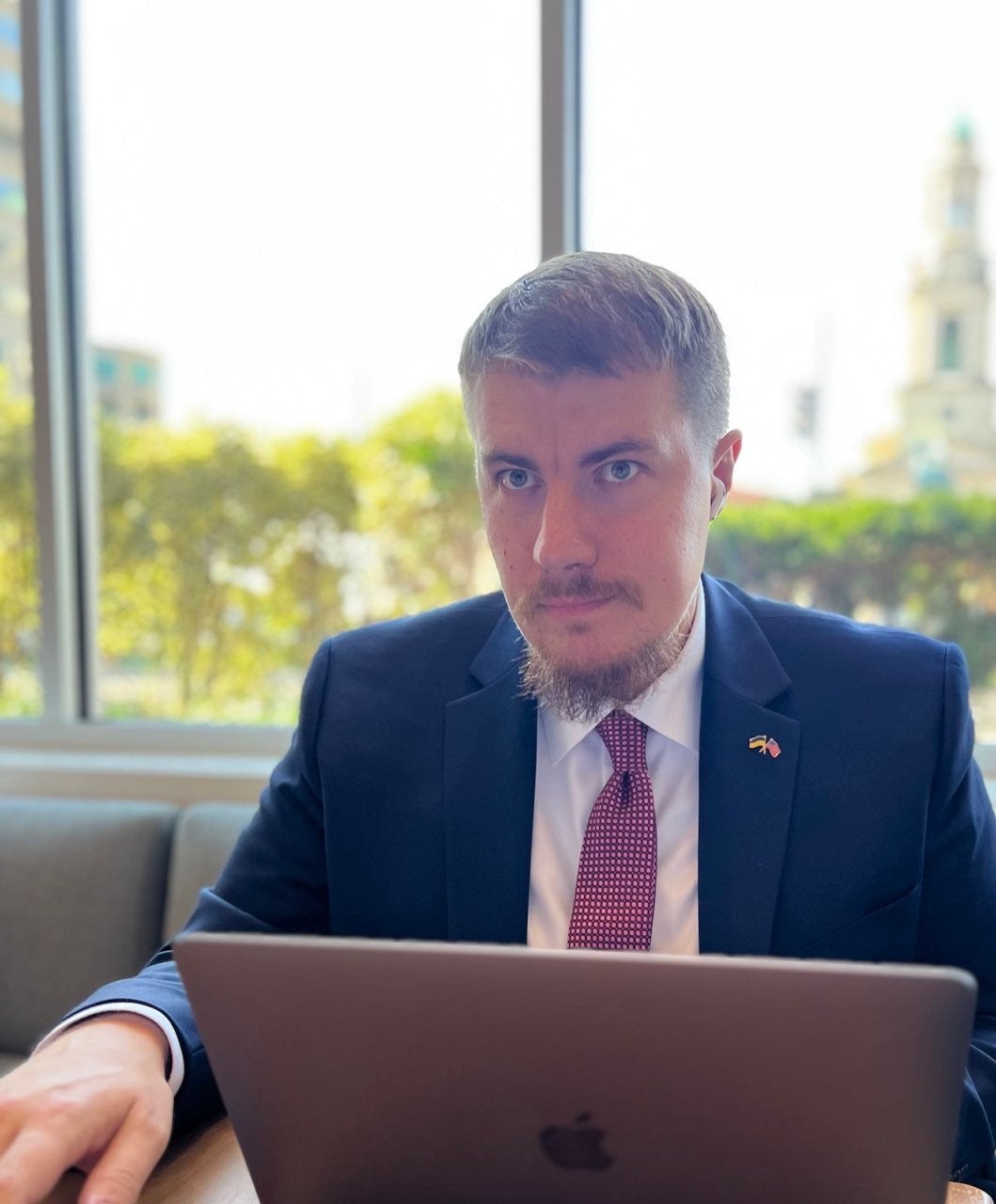
“Things have changed drastically so logistics are no longer a problem,” he says.
“Commercial carriers can now deliver anything from the Polish border to the frontline in less than 48 hours and cheaply.
“Now, the challenge is having the products to ship. While lots of items that were out of stock at the start of the war – like boots and uniforms – are now being manufactured in Ukraine and are available, Ukraine doesn’t manufacture drone products and supply is limited.”
Which is why the focus has shifted from buying locally to buying goods from the West and sending them to Ukraine.
“We’re following through on the idea of making the West the rear of Ukrainian operations,” he says.
In between liaising with Western governments and suppliers, Liscovich also regularly travels to the frontline to see what the true needs are on the ground.
“A few weeks ago I was in the trenches at the very, very front,” he says.
“It’s essential to go there to see what morale is like and what people are saying there in the trenches as things can get distorted up the chain of command.”
He adds: “Having run Silicon Valley start-ups, I know how important it is to get close to the problem in order to understand what needs to be solved and how to make the most impact. It’s incredibly difficult to do that from a distance.”
As a public charity, the goods sourced continue to be non-lethal – involving anything a soldier needs other than weapons.
The importance of these items to performance on the battlefield shouldn’t be underestimated, he says.
“All the pieces of equipment we source are commercial products,” he says.
“Our focus is on augmenting the capabilities to affect the military outcome without touching lethal things.
“This war has shown the impact non-lethal things can have on the battlefield.”
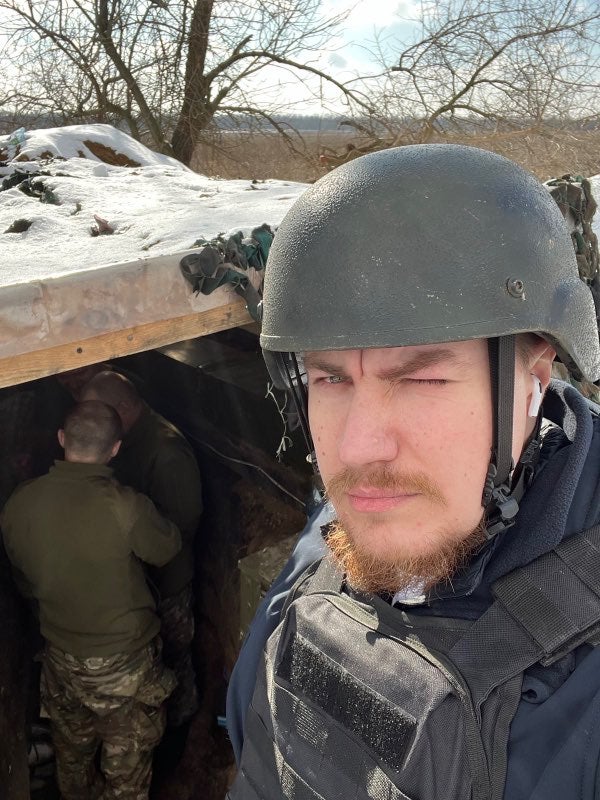
In total, the Ukraine Defense Fund has now directly raised around $7m (£5.8m) in contributions and has helped broker transactions and deals worth $70m.
A lot of these contracts have been with money from the German government.
Support from Uncle Sam
Liscovich hopes that, in time, he can start working with the US government on funding non-lethal aid as well.
“One of the key things we’re trying to achieve – and haven’t yet managed – is to unlock US funding for non-lethal aid. The US has much larger resources but Ukraine has so far mostly asked for and received lethal aid from the US,” he says.
“That’s not an accident as Ukraine doesn’t want to stop getting lethal aid from the US but we’re trying to make the case that non-lethal aid is not a substitute.
“Non-lethal items are crucial as well as lethal items as they, for example, augment intelligence and communications on the frontline.”
As someone who has worked and lived in the US for years, he says it’s “difficult” to say what his views are about America’s response to the war.
The aid that the US has so far provided to Ukraine has been “essential”, he says, but it is far less than what Ukraine has asked for – and needs.
“Ukraine needs more equipment – tanks, artillery systems. Ukraine has repeatedly requested more aid and the US has that in its inventory,” he says.
“It’s not about the availability of inventory but policy decisions in the administration.

“But it’s a difficult question in a sense that the Biden administration is making decisions on information that may not be publicly available.”
When Liscovich himself will return to California depends largely on the war.
How life has changed
He says he has been back to the US four times over the last year – but only to meet with vendors face-to-face as part of his work for the Ukraine Defense Fund.
Now, he spends 70 to 80 per cent of his time in Ukraine, mostly in his hometown and travelling to and from the frontline.
One year ago he says he could “absolutely not” have ever imagined this would be what he was doing.
“My life has changed in many ways over the last year,” he says.
“A year ago I thought I would be running my company in Silicon Valley.
“I never planned on running a non-profit or working with governments. This was not on my radar.”
Coming face to face with the prospect of his own mortality is also not something he contended with when he was back in the Bay Area.
“I’ve been confronted with mortality very directly here so there have been times where I’ve reassessed life,” he says.
“Two missiles landed next to my office, two landed next to where I was staying and one landed next to the restaurant where I used to go every day,” he says.
For him, he says the dangers have always felt like “calculated risks”.
“I don’t think I’m taking unnecessary personal risks. There are missile strikes but I’m not playing Russian roulette,” he says.
“I’m trying to be rational and recognise that in most places the risk is lower than being killed in a traffic accident.”
While the dangers have never prompted him to reconsider packing up and heading back to his old life in Silicon Valley, they have given him a new perspective on life.
“When you start to see these things up close you have to reassess your life priorities. It forces a different perspective on you and you realise the things that matter and the things that are secondary,” he says.
“I hope we get peace. But not peace on any terms. Peace that creates a sustainable precedence for the future.”
Join our commenting forum
Join thought-provoking conversations, follow other Independent readers and see their replies
Comments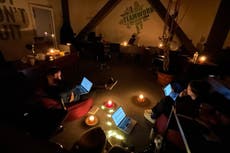

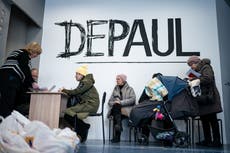
Bookmark popover
Removed from bookmarks